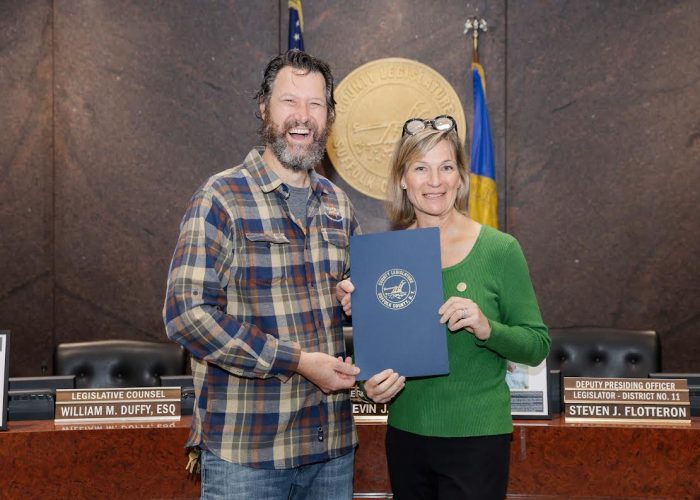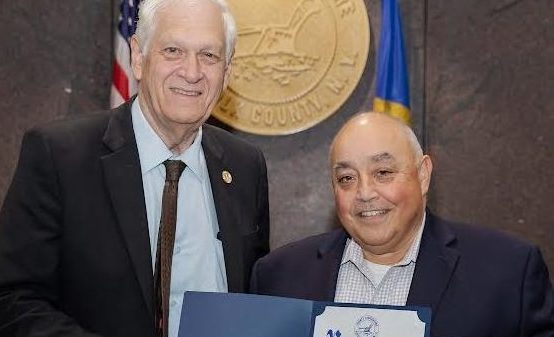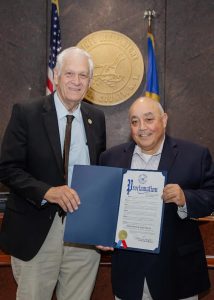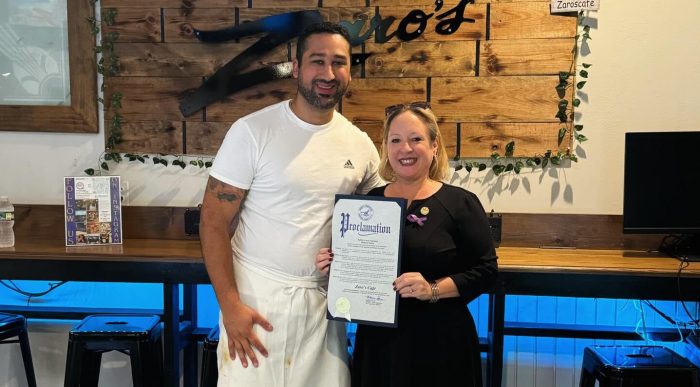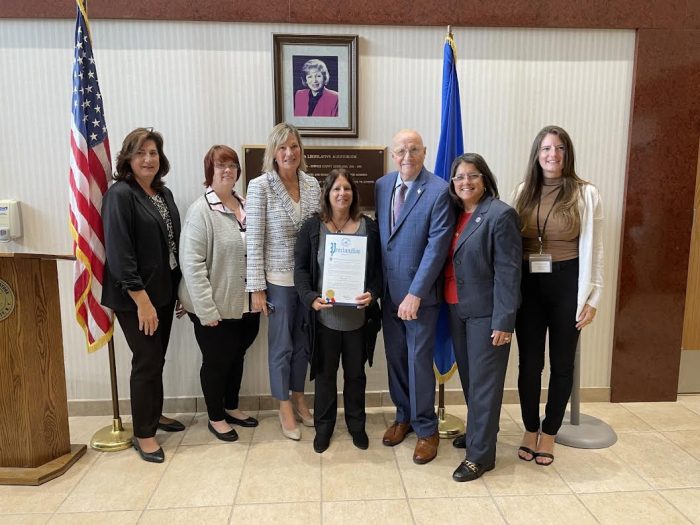By Lynn Hallarman
The final report reviewing the capital projects fund was presented to the public by CPA firm, PKF O’Connor Davies of Hauppauge, at the Village of Port Jefferson Board of Trustees Sept. 25 meeting, ending a year of uncertainty over the financial condition of the fund.
The most significant conclusion was an estimated $1.27 million in overspending on capital projects done without an identified funding source. The largest overage was the East Beach bluff stabilization project of about $800,000.
Why the review was done
One year ago, concerns were raised by then newly-appointed village treasurer, Stephen Gaffga, about the bookkeeping practices that track the village’s capital projects fund. This prompted village officials to hire PKF O’Connor Davies to give a full historical accounting of the fund’s financial recordkeeping. The review spanned from May 2016 to May 2023.
“I noticed shortly after starting my position as treasurer in September of 2023 that our capital projects fund looked like every expense account had a negative balance, which immediately raised red flags for me,” Gaffga said in an interview with TBR News Media.
Gaffga noted that best practices recommended by the Office of the New York State Comptroller were not being followed, making it difficult to track how money was being spent on individual projects.
Ideally a capital project fund ledger should give a granular view of how money flows though different projects and meticulously accounts for funding and payments related to each project, according to the OSC.
The village additionally enlisted Charlene Kagel, CPA — former commissioner of finance for the Town of Brookhaven and ex-Southampton village administrator — as an expert municipal finance consultant to assist the village as it corrects bookkeeping practices to comply with state guidelines.
Reports findings
According to PKF O’Connor Davies, the purpose of the capital projects fund review was to identify which projects have been funded, which have been overspent and what grant funds for specific projects have not yet been reimbursed to the village.
The report provided a clearer picture of the capital fund financial state, especially addressing the overall negative balance observed a year ago. PKF detailed 26 projects as having a deficit fund balance.
Reviewers also noted that “recordkeeping varied by project” — or in other words, the bookkeeping lacked a consistent approach across the ledgers.
Overall, the review revealed an $8.1 million total deficit as of May 31, 2023. “Most of this deficit, an estimated $5 million, is due to grants expected but not yet received by the village,” Gaffga said.
The estimated $1.27 million shortfall comes from spending on a few large projects, most of which, $800,000, is attributed to the bluff stabilization project.
Gaffga explained that the additional spending on the bluff project occurred incrementally over several years starting in 2017, with board members approving these expenses without first identifying a funding source.
Recommendations
Recommendations to the village boil down to one improvement: Follow bookkeeping guidance outlined by the OSC.
The report also identifies the absence of a long-term capital projects fund plan for the village.
Kagel told TBR that an excellent capital plan should include a list of proposed projects by department heads and for municipalities to assign each project a “priority ranking” year by year.
“The board ranks what projects are most important and then figures out how they are going to pay for it,” she said.
Gaffga added, “There will need to be an identified funding source to correct that $1.27 million deficit in the capital fund.”
Gaffga pointed out, however, that this amount is an unaudited estimation. The village has hired a new accounting firm, R.S. Abrams & Co. of Islandia, to finalize the numbers cited in the report before village officials will move forward with a financial plan to reimburse the capital projects fund, as required by municipal law.
“Bottom line, it’s just bad bookkeeping. The village didn’t follow the recommended practice and accounting procedures that are set forth by the state and this is what happens when you don’t,” Kagel said.
Moving forward
The treasurer for a municipality is the custodian of all capital funds, responsible for tracking the finances of each project and developing financial reports for the board and the public.
“At the same time, the board is ultimately responsible for the oversight of the village financials,” Kagel said. “It’s pretty clear that municipalities aren’t supposed to overspend their budget, according to general municipal law in New York State.”
“Stephen [Gaffga] has implemented an OSC best practice, tracking each project financial detail to be sent to the board monthly, so the board can say, ‘Hey, how come we’re in the red on this project?’” she said.
“I’m glad we are now through the most difficult part of the capital projects fund review process and we now know exactly where the village stands,” Mayor Lauren Sheprow said in an email statement to TBR News Media.
“Now the village can proceed to develop a truly transparent capital project plan with guidance from our new Budget and Finance Committee and our incredible treasurer, Stephen Gaffga,” she added.
The full report can be viewed on the Village of Port Jefferson website at www.portjeff.com, and the next Board of Trustees meeting will be held on Oct. 9, as a work session.


